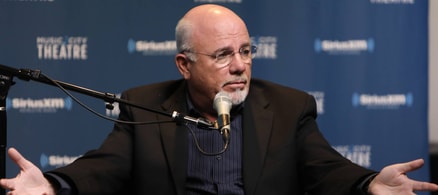What is a digital nomad?
A digital nomad is an individual who earns an income from working remotely online. This allows them to work from anywhere in the world without needing a fixed location. As such, digital nomads often move around quite a bit, without having strong ties to any specific location.
More from Money.ca
- With travel restrictions loosening, here's how to avoid soaring ticket prices
- How Canada's new COVID-19 rules will affect the cost of travel
- Cancelled your travel plans due to Omicron? Here’s how to get your money back
There are an estimated 38 million people living the digital nomad lifestyle.
Some of the most popular destinations for digital nomads include:
- Costa Rica
- Czech Republic
- Dubai
- Estonia
- Georgia
- Malta
- Mexico
- Greece
- Croatia
- Portugal
Maximize Your Tax Refund with TurboTax Canada!
Simplify tax season with this user-friendly software. Get step-by-step guidance, maximize deductions, and file with confidence. Trusted by millions, TurboTax Canada ensures accuracy and peace of mind. Start your taxes today and get the refund you deserve
Get the tax refund you deserveEarning potential
One of the biggest draws of the digital nomad lifestyle is that you can choose to stay in destinations with a much lower cost of living than Canada. For some, this presents a great opportunity to save money for the future. For others, it’s a way to live a more luxurious lifestyle than they could afford back home.
We often associate the idea of being a digital nomad and being able to travel the world with financial success. However, this isn’t always the case. Some digital nomads may not earn enough to make a livable income in Canada. This is why they may pick locations such as Thailand, Mexico, or Bali, where the cost of living is considerably cheaper.
The earning potential of being a digital nomad depends on your income and where you choose to base yourself while you travel and work. You can make an average salary and choose to live somewhere with a low cost of living, thereby saving a lot of money. Or you can make an above-average salary and choose to live a simpler lifestyle in one of the more expensive cities of the world. At the end of the day, it depends on what you are looking to get out of this lifestyle.
How does it impact long-term retirement savings and investments?
The status of your retirement savings and investments in Canada will depend on whether or not you are considered to be a resident or a non-resident. According to the Government of Canada, you must have stayed in Canada for at least 730 days within the last five years to keep your permanent resident status. These days do not need to be consecutive.
If you lose your permanent residency, long-term investments in Canada become tricky. For example, if you have a TFSA, the year in which you leave will be the last time you get contribution room. If you continue to contribute as a non-resident, you will be charged a 1% penalty per month on those contributions. For RRSPs, you can continue to contribute until you leave, but only if you continue to have a Canadian income source. If you have no employment income from Canada, you will lose contribution room to your RRSP.
It’s also not as easy as it used to be to get non-resident accounts from banking or financial institutions, even if you have existing ties to Canada. There are now additional restrictions that are intended to prevent money laundering and the funding of terrorist organizations. That being said, there are some financial institutions that cater toward non-resident Canadians who are still interested in holding Canadian investment accounts. CI Direct Investing (formerly Wealthbar) is one of the most popular investment options for non-residents of Canada.
As a digital nomad it is in your best interest to maintain permanent residency in Canada.
Grow Your Savings Effortlessly with Moka
Automate your savings with every purchase and watch your money multiply. Moka rounds up your transactions and invests the spare change. Start building wealth effortlessly today. Join thousands of Canadians embracing financial freedom with Moka
Sign up nowVisa requirements
As a digital nomad, working remotely means you can often choose tourist visas for the countries you stay in. While this keeps costs low and administrative issues easy, you need to abide by the allocated time in which you are allowed to spend in a country, or you risk legal and financial penalties.
For example, Canadians can only stay within Europe’s Schengen region — an area made up of 26 European countries, including France and Italy — for a maximum of 90 days within a 180-day period. For Bali, one of the most popular digital nomad destinations, a 30-day tourist visa costs about $45. It would then cost about $90 to extend the visa for another 30 days.
Some countries allow you to renew your visa, or offer longer stays with their visas. Every country is different, so it’s up to you to do the research and figure out the rules and regulations and ensure that you follow them.
However, the rising popularity of the digital nomad lifestyle has led to the ongoing development of digital nomad visas in some countries, in an attempt to lure more remote workers. Since these types of visas last longer, they tend to come with minimum income requirements to ensure that you can support yourself while living and working in the country.
While you can find info on “digital nomad visas,” the visas may not necessarily be called that by the country that issues them. Forty-one countries currently have these visas in place, all with different conditions, costs and durations.
Georgia’s “Remotely from Georgia” one-year program is free, but requires proof of US$2,000 income per month. Meanwhile, Norway’s “Independent Contractor Visa” requires proof of about US$47,000 in income, and proof of accomodation. There is also a US$640 fee for Norway’s program.
Other popular digital nomad locations, such as Italy, Bali and Thailand, also have remote visa options in the works.
More and more countries are expected to jump on this train as remote work increases in popularity, and as people start to travel more with loosening COVID-19 restrictions.
Meanwhile, the U.S. has announced plans to increase the fees for non-immigrant visas. It is always possible that a country decides to raise its fees, so keep that in mind if you wish to pursue this lifestyle.
Sponsored
Trade Smarter, Today
With CIBC Investor's Edge, kick-start your portfolio with 100 free trades and up to $4,500 cash back.







